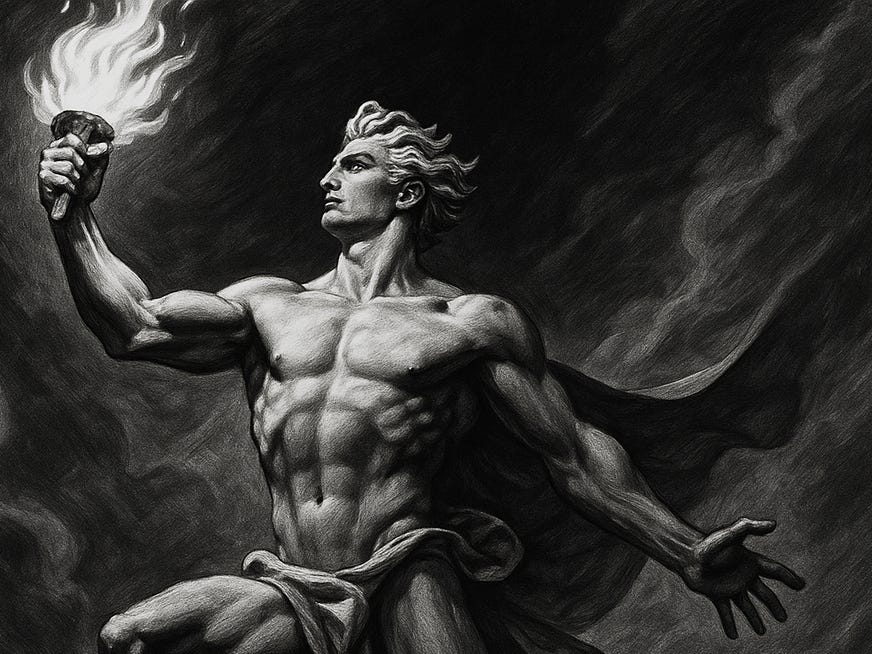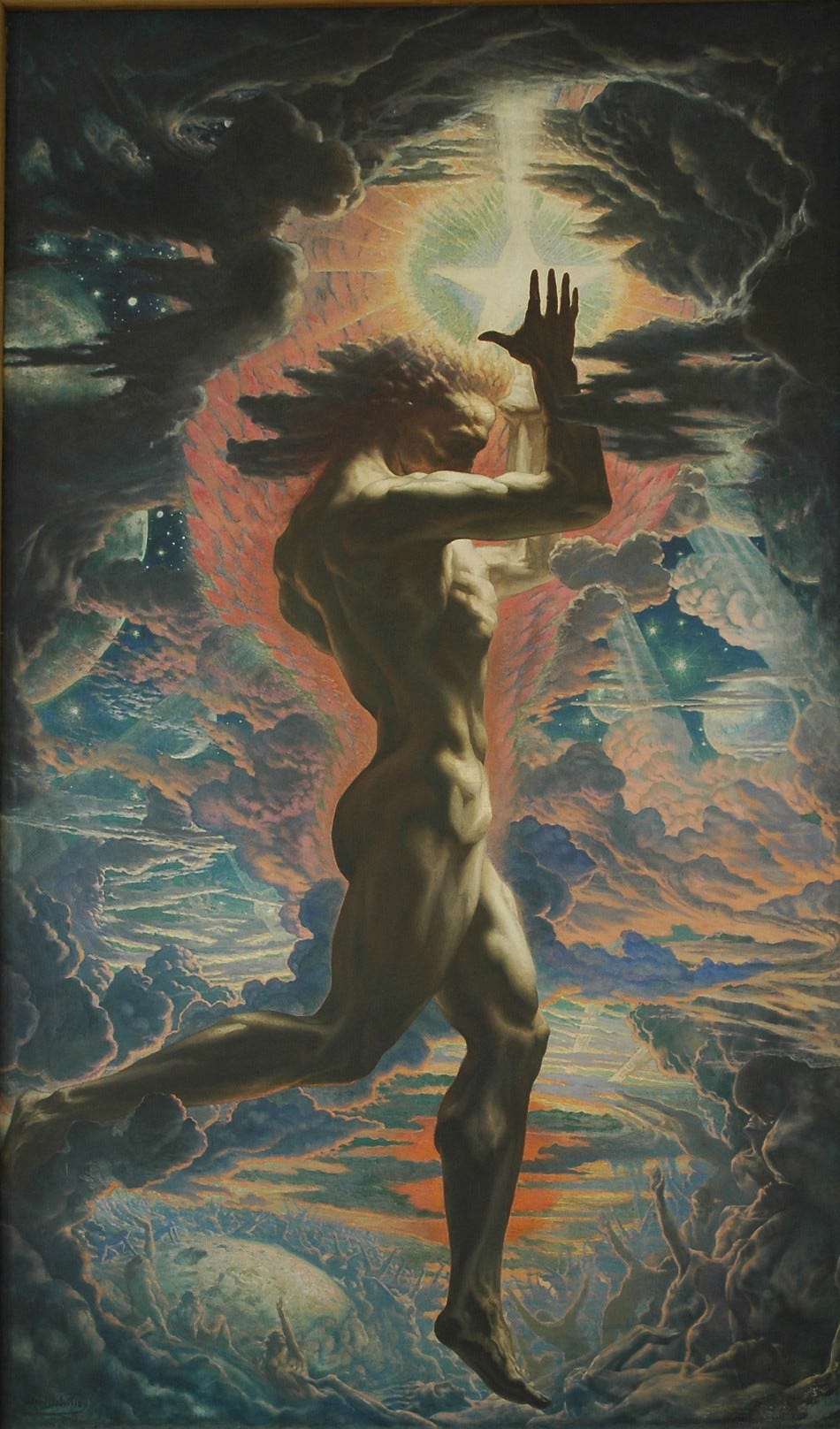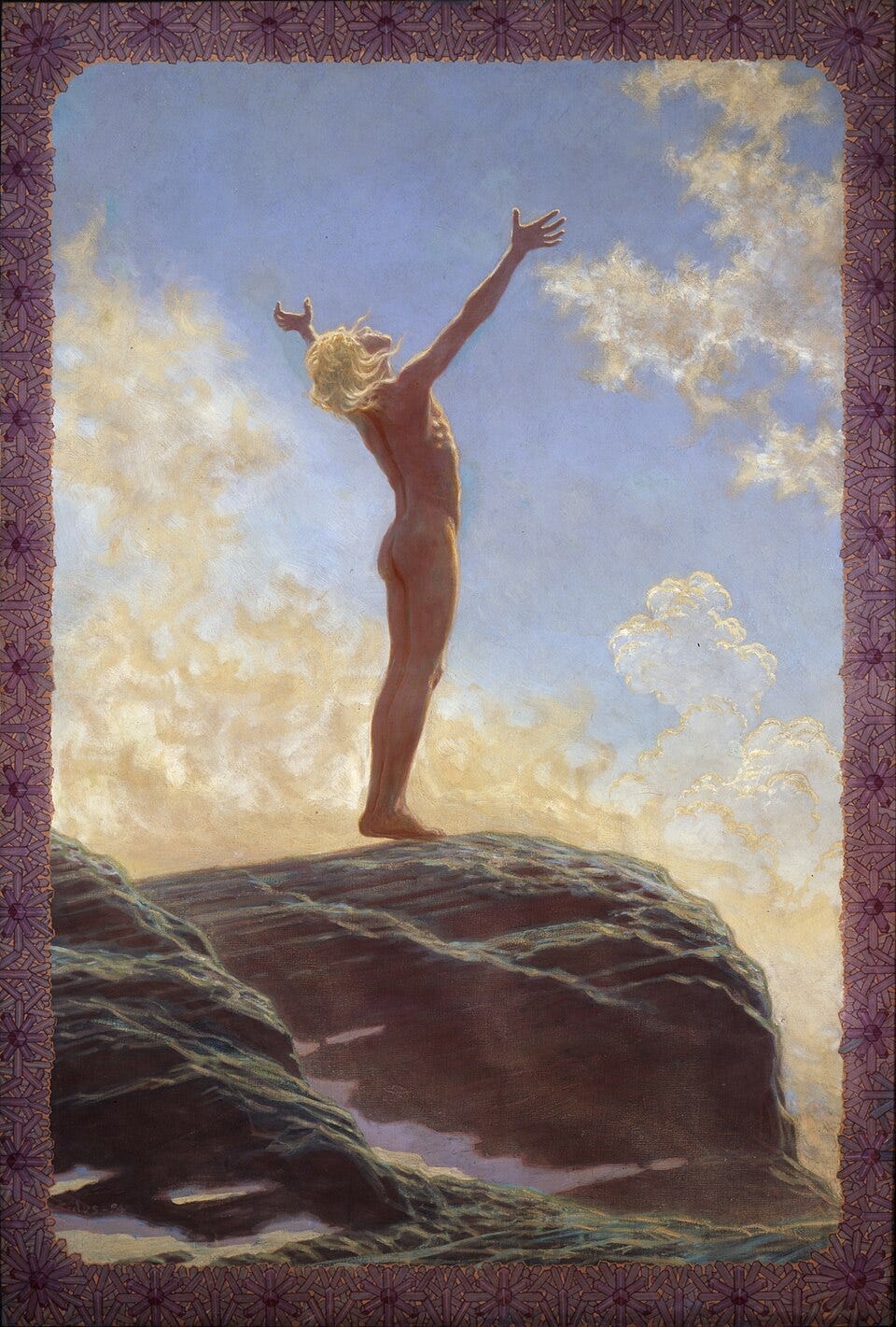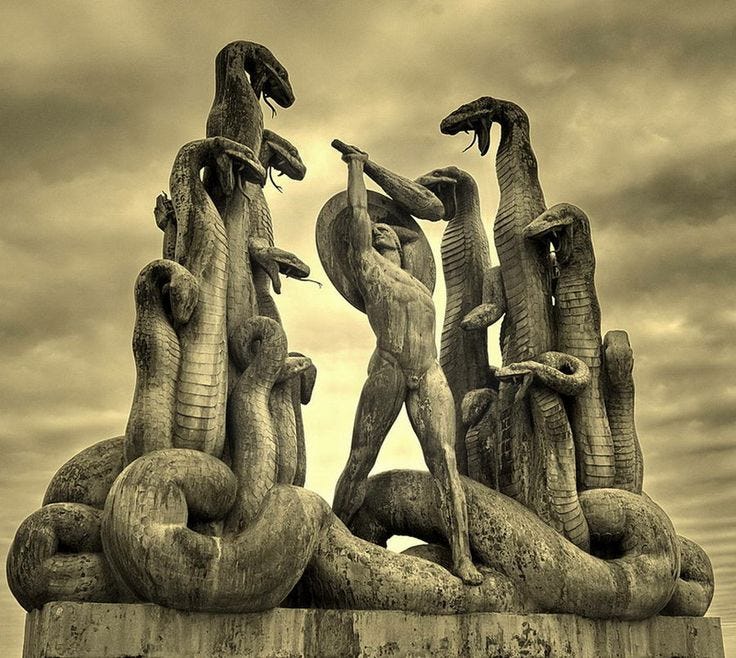Decadent Chronicles 5: Heart Laid Bare
by Christian Chensvold
Christian Chensvold calls the modern man to strip down before Apollo and emerge as a crowned soul forged in Promethean fire, ready to rule himself.
Obviously, you must be naked. As still as a Greek statue. In the light of the sun, for all the gods to see, with nothing but the measure of your soul and its worth. You must go to the forest or lake, field or sea, wrest the corporate garments from your torso, strip all human instititions and ego identifications from yourself, and stand before Apollo and say, “Here I am.”
No bank account, no sports car, no college diploma, only the content of your soul, the “measure of your heart” that will be weighed at the gates of the afterlife when your earthly heart beats for the last time. If you cannot endure this trial. If you cannot understand it, then relax. It’s OK. You’re just not meant to be immortal. You are the child of Mother Earth and the left hand of God, not a son of Zeus, a hero here in the Age of Iron, destined to fight the unbeatable foe for an entry pass to the Elysian Fields.
My Heart Laid Bare is the phrase used for his diary by Charles Baudelaire, godfather of the discontents of Modernism and patron saint of the Decadent Movement (1880-1914). But it is not just the heart that must be laid bare for a way out of the decadence to take place. There must be a “radical destruction of the bourgeois,” as Evola put it, in the consciousness of you as Modern man. You must burn your old self with the fire of Prometheus — as in this 1907 work by the Belgian visionary Jean Delville — to be reborn, phoenix-like, from the ashes, prepared to confront the multi-headed Hydra of Western decadence.
With hindsight, we see that there was much more going on concurrently with the Decadent Movement than academic scholarship admits. While the French and English identified with the refined, urbane Romans of the Empire collapsing under the barbarians, the Germans sought to rekindle atavistic memories through the Lebensreform movement, which emphasized the experience of being naked in nature. The artist known as Fidus depicted nude figures in ancient scenes of Hyperborean sun-worship, in a realm of Being far from the escalating world of factories, machines and modern cities, as in the 1894 painting Light Prayer, perhaps the most recognizable of his work.
Julius Evola’s esoteric writings emphasize the power that rites, or ritual actions, confer upon those whose souls identify as warrior nobles, spiritual initiates, and artistic visionaries. When you go on your forest escape and free your mind from the conditionings of modern society, you can experience nature in the “free and naked” state Evola describes in Pagan Imperialism. You can also lay yourself bare before Apollo, primordial light of all life in our solar system and guiding god of the Hyperborean race, and say “I’m here. See me.” This state of Being is referred to as “absolute nakedness” in Evola’s book on Eros.
The experience of a modern replicant wearing an earphone and staring at a device while hiking in nature is quite different from that of a man standing perched upon a stone as if it were a marble pedestal, holding a stick for a sword and posing as Hercules — as in this 1918 sculpture by Danish artist Rudolph Tegner. In fact, it is the difference between the soul of a slave and the soul of a sovereign.
Finally, if you feel called by the path of re-integration into the Primordial State, then you must also experience absolute nakedness at night as a “woman” so as to become Lord of the Two Natures. Like Xerxes in the film 300, you must enter the “cave” and “waters” of the psyche, where the feminine principle of Being lies latent, and assume and integrate its powers, molding them to your spiritual virility and emerging “stripped, cleansed and glabrous” with fire in your eyes.
Then, having melted the seven metals of the planets in your natal chart, purified them through the signs of the zodiac, and finally arrived at the houses, or the realm of action in which your pre-written destiny-possibility lives in God’s imagination of you as his created character, what part of the vast and microcosmic universe of yourself must lord over the rest of you?
The lord part, obviously.
Which is to say the heart laid bare and wearing a crown, brandishing a sword in one hand, and holding the globe of the world in the other.
~
Christian Chensvold is a college fencing champion, third-generation astrologer, founder of Dandyism.net (2004), and author of The Philosophy of Style (2023) and Dark Stars: Heroic Spirituality in the Age of Decadence (2024). He is currently writing a work of 21st-century mythology, a Hyperborean Gothic fantasy that seeks to inspire Europa at the time of its greatest crisis.







If men only knew how terribly women crave for a gentle, conversational male heart in a brave warrior.
Un messaggio stupendo per chi ama la metafisica e la Tradizione degli antichi .